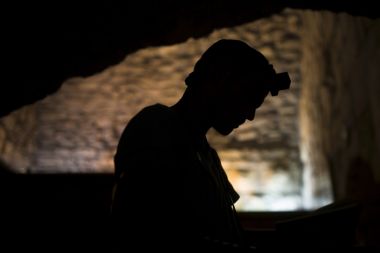New Western Wall plans will damage ancient site, Netanyahu warned
Breakthrough plans to expand a mixed-gender prayer section along Jerusalem's historic Western Wall have faced another setback after leading archaeologists warned the suggestions would damage the site.

Nine senior Israeli archaeologists signed a letter warning Prime Minister Netanyahu that the "diamond in Jerusalem's archaeological crown" must not be harmed, according to Israel Radio.
The protest is another stumbling block in plans to extend an existing area south of the main Western Wall prayer site by creating a plaza over the Temple ruins in an area known as Robinson's Arch.
Signatories to the protest letter include Dan Bahat, who excavated the Western Wall tunnels; Ronny Reich, head of the Archaeological Council of Israel who exposed part of the paved road beneath Robinson's Arch; Jerusalem Prize winner Gabriel Barkay, who directs the Temple Mount Sifting Project; and Israel Prize laureate Amihai Mazar.
However the plans have been approved by the Western Wall Heritage Foundation, responsible for archaeological concerns.
Until now women were allowed to pray in silence in a small section of the western wall but were forbidden from singing or worshipping aloud and from praying alongside men or in groups. If built, the plan would formalise access to the Western Wall for women's prayer groups and allow them to pray with men.
This is not the first time a spoke has been driven into the wheels of the plans, which would end a decade-long struggle between Reform, Conservative and ultra-Orthodox Jewish groups over prayer rights at the wall.
One day after the plans were announced, Palestinian Minister of Waqf and Religious Affairs Youssef Ideiss warned Israel would use the expansion of the non-Orthodox section to carry out archaeological digs and "Judaicize the holy site".
The Western Wall is the holiest site where Jews can pray. It is a remnant of the Temple destroyed in AD70, closest to where the Holy of Holies used to be. God's presence, according to Jewish tradition, dwelt within the Holy of Holies.











